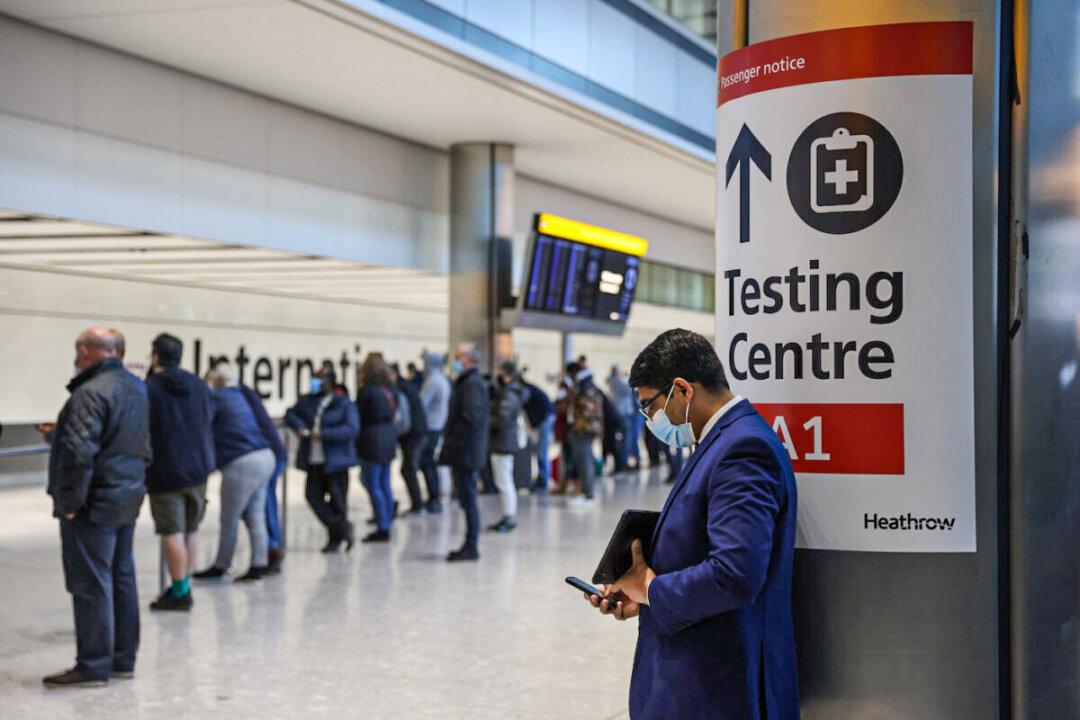The UK government’s restrictions on international travel during the CCP virus pandemic were “disproportionate to the risks to public health,” a select committee of MPs said.
The Transport Committee on Monday published the report of its inquiry into airlines’ and airports’ recovery from the pandemic, urging the government to devise “a transparent and predictable system” that can be used in potential future pandemics.





